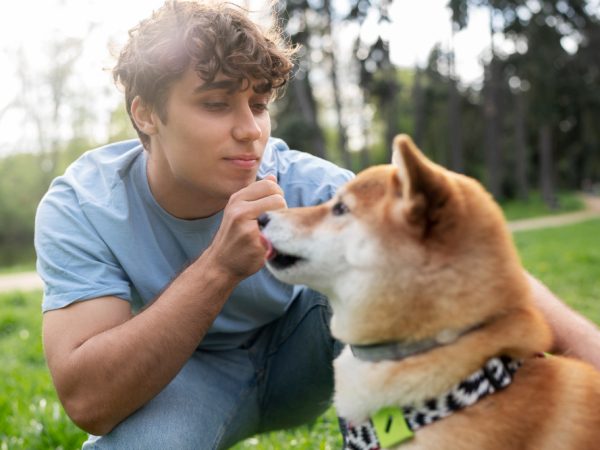Neutering, also known as castration, is a common surgical procedure performed on male dogs to remove their testicles. While neutering is often recommended for population control and behavioral reasons, it also has significant effects on a dog’s health and behavior. In this article, we’ll delve into how neutering affects male dogs, covering both the physical and behavioral changes that can occur as a result of this procedure.
Hormonal Impact of Neutering
One of the most noticeable effects of neutering on male dogs is the alteration of their hormonal balance. By removing the testicles, which are the primary source of testosterone production, neutering significantly reduces the levels of this hormone in the dog’s body. As a result, neutered male dogs may experience physical changes such as a decrease in muscle mass, a reduction in body fat, and changes in coat texture and appearance. Additionally, neutering can affect the development of secondary sexual characteristics such as the size and shape of the dog’s genitalia.
Reduced Risk of Certain Diseases
Neutering can offer several health benefits for male dogs, including a reduced risk of certain diseases and conditions. Neutered male dogs are less likely to develop testicular cancer, as the removal of the testicles eliminates the possibility of this type of cancer. Additionally, neutering can lower the risk of prostate problems, such as prostatitis and benign prostatic hyperplasia (enlargement of the prostate gland), which are more common in intact male dogs. By reducing the risk of these health issues, neutering can help male dogs live longer, healthier lives.
Impact on Aggression and Roaming
Neutering can also have significant effects on a male dog’s behavior, particularly in terms of aggression and roaming. Intact male dogs are more likely to exhibit territorial aggression, dominance-related aggression, and mating-related aggression toward other dogs, particularly males. Neutering can reduce the intensity of these aggressive behaviors and make the dog more social and less prone to conflicts with other dogs. Additionally, neutering can decrease the likelihood of roaming and wandering behavior, as neutered male dogs are less motivated to seek out females in heat.
Reduction in Urine Marking
Male dogs often engage in urine marking behavior as a way to communicate with other dogs and establish their territory. Neutering can reduce the frequency and intensity of urine marking, as the decrease in testosterone levels reduces the dog’s motivation to engage in this behavior. While neutering may not completely eliminate urine marking in all male dogs, it can significantly reduce the occurrence and help make the dog’s behavior more manageable for owners.
Potential for Weight Gain
While neutering can lead to a decrease in muscle mass and body fat in some male dogs, it can also contribute to weight gain in others. Neutered male dogs may be at a higher risk of becoming overweight or obese due to changes in metabolism and activity level. To prevent weight gain and maintain a healthy body condition, it’s important for owners to monitor their neutered male dog’s diet and exercise regimen closely and adjust as needed to prevent excessive weight gain.
Understanding the Effects of Neutering
In conclusion, neutering can have significant effects on male dogs, both physically and behaviorally. By altering the hormonal balance in the dog’s body, neutering can lead to changes in muscle mass, coat appearance, and secondary sexual characteristics. Additionally, neutering offers health benefits such as a reduced risk of certain diseases, including testicular cancer and prostate problems. Behaviorally, neutering can decrease aggression, roaming, and urine marking behavior, making the dog more social and manageable for owners. However, it’s essential for owners to understand that neutering is not a one-size-fits-all solution and that individual dogs may respond differently to the procedure. Consulting with a veterinarian can help owners make informed decisions about whether neutering is the right choice for their male dog.




